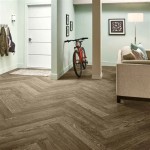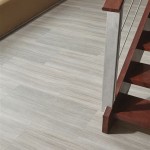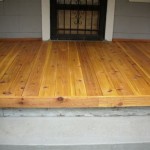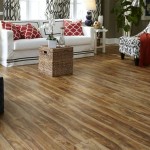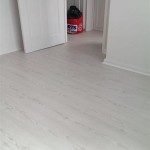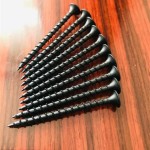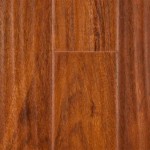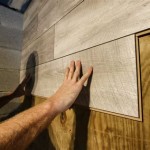Can You Install Wood Flooring Over Particle Board?
Particle board is a widely used material for subflooring due to its affordability and stability. However, it's important to consider whether it's a suitable base for wood flooring installation. This article delves into the essential aspects of installing wood flooring over particle board to help you make an informed decision.
Compatibility and Preparation
Not all types of wood flooring are compatible with particle board subflooring. Solid hardwood flooring planks, for instance, are generally not recommended due to their susceptibility to moisture and movement. Engineered wood flooring, on the other hand, is often suitable as it features a moisture-resistant core.
Before installation, it's crucial to ensure the particle board subfloor is level, dry, and structurally sound. Any unevenness or moisture issues must be addressed prior to flooring installation to prevent future problems.
Underlayment
An underlayment is essential when installing wood flooring over particle board. It provides a moisture barrier, reduces noise, and enhances the overall stability of the flooring system. A suitable underlayment for particle board subflooring is a vapor barrier or a combination underlayment that combines a vapor barrier with a noise-reducing foam.
Fastening Methods
The appropriate fastening method depends on the type of wood flooring and the thickness of the particle board. For engineered wood flooring, a 1/4-inch minimum subfloor thickness is required, and it can be fastened using either a nail gun or screws. If the particle board is thicker than 1/4 inch, it may be necessary to use nails or screws that are longer than the standard 1-1/2 inches.
Expansion Gap
As with any wood flooring installation, it's essential to leave an expansion gap around the perimeter of the room to allow for natural expansion and contraction. This gap can be concealed by molding or baseboards installed after the flooring is in place.
Additional Considerations
In addition to the aforementioned aspects, there are a few additional considerations to keep in mind.
- Moisture: Particle board is susceptible to moisture damage. Ensure the subfloor is completely dry and protected from moisture before installing wood flooring.
- Heavy Objects: Heavy furniture or appliances can potentially damage particle board subflooring. Consider the weight distribution and use additional support if necessary.
- Professional Installation: While experienced DIYers may attempt the installation themselves, it's recommended to hire a professional flooring installer to ensure proper preparation, installation, and adherence to industry standards.
Conclusion
Installing wood flooring over particle board can be a viable option when considering factors such as compatibility, preparation, underlayment, fastening methods, and expansion gap. By ensuring the particle board subfloor is level, dry, and properly prepared, and by following best practices for installation, you can achieve a durable and aesthetically pleasing wood floor covering.

Installing Hardwood Flooring Over Particleboard Magnus Anderson

Installing Hardwood Flooring Over Osb Panels West Fraser Integrated Forestry Company

How To Install Oak Hardwood Floors Young House Love

Can I Install Hardwood Floors On Particle Board

Solid Hardwood Flooring Installation Method Over Particleboard

Parquetry Engineered Flooring Installation Method Over Particleboard

Particle Board As A Flooring Solution

Why Particle Board Subfloors Are Bad Chris Loves Julia
Is It Bad To Install Hardwood Flooring Over Particle Board Quora

Installing Wood Subfloors Over Concrete Hardwood Floors
Related Posts

